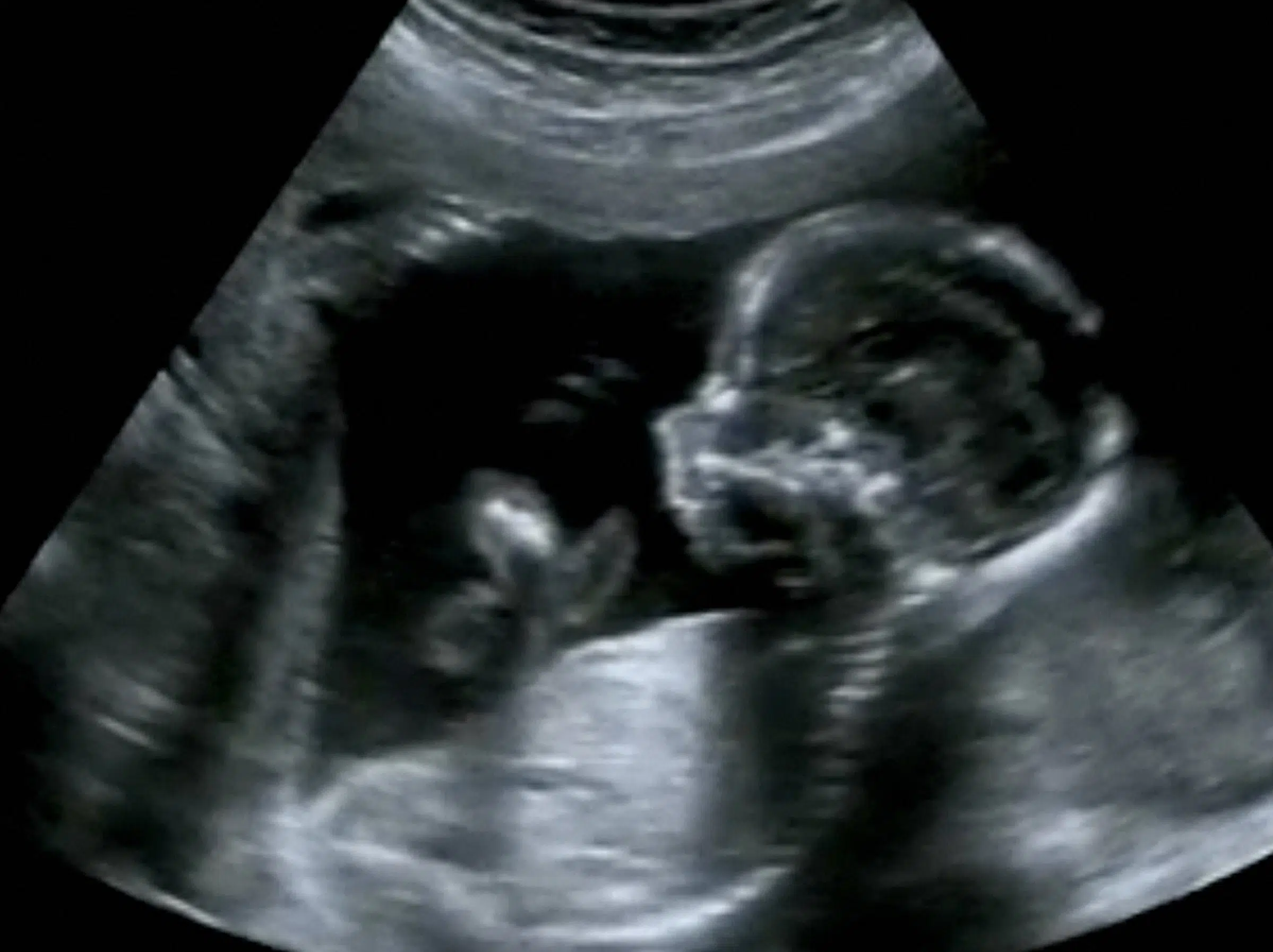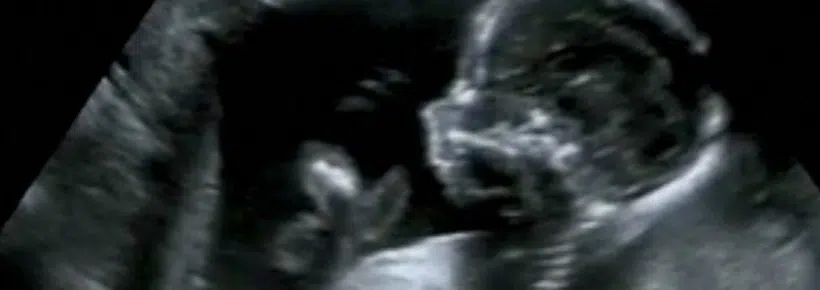Five States Follow Texas’ Pro-Life Lead

As I wrote a few months ago, the pro-abortion Guttmacher Institute (previously the research arm of Planned Parenthood) labeled 2021 the worst year for legal abortion since Roe v. Wade. Well, a few days ago the Guttmacher Institute published their first analysis of 2022 – and the news couldn’t be more encouraging.
“In 2021, state legislatures set an alarming record of 108 abortion restrictions enacted in 19 states,” reports the Institute in their update. “With the fate of Roe v. Wade hanging in the balance at the US Supreme Court, 2022 is shaping up to be even more devastating for abortion rights and access.”
This is music to my ears. After all, what the Guttmacher Institute believes is “devastating” for abortion rights, is potentially life-giving for some of the hundreds of thousands of unborn children that are killed through abortion every year in the United States.
Good News on the Texas Heartbeat Act
In its update, the Guttmacher Institute laments new pro-life laws that it calls “outrageous” and “shocking,” exposing – it says – “just how radical the anti-abortion agenda truly is.” In particular, the Institute highlights Texas’ Heartbeat Act, which went into effect last August, and which just received a major court victory.
Earlier this month, the Texas Supreme Court issued a ruling that legal analysts say likely spells the end of efforts by abortionists to challenge the law. The case against the law, Whole Woman’s Health v. Jackson, was brought by the Center for Reproductive Rights (CRR) and other pro-abortion groups. As the CRR explains, in its decision “the Texas court ruled that state licensing officials do not have the authority—directly or indirectly—to take enforcement action based on violations of S.B. 8, leaving no other defendants against whom the case can proceed.” And without any defendants left, there is no case left.
In December of last year, the U.S. Supreme Court refused to block the Texas law, allowing it to stay in effect while the challenges against the law proceeded in the lower courts. But with the Texas Supreme Court now having closed the door on that challenge, it seems that efforts to eradicate S.B. 8 have reached the end of the road.
As the Guttmacher Institute put it, this decision “exhausts the legal options to stop this immensely harmful law that has been in effect for more than six months and may embolden other states to adopt their own Texas-style bans this year.”
Pro-life advocates in the Lone Star State are celebrating. “This is a win for thousands of unborn Texans and I’m proud to defend those who do not yet have a voice,” Texas Attorney General Ken Paxton said after the court decision.
Meanwhile, the evidence is mounting that the law has already saved thousands of unborn children from a gruesome death, and will likely save countless of thousands more in the coming months and years.
At the beginning of February, the Texas Health and Human Services Commission released data showing that there were 2,197 abortions in Texas in September 2021 – the month after the Heartbeat Act went into effect. In the prior month, there were slightly over 5,400 abortions. While this is 2,197 more abortions than there should be, this number marks a nearly 60% reduction of abortions in the first month of the law. And when considering that abortion numbers in Texas were consistently above 4,200 in the first seven months of 2021, we can also see how the pro-life law is responsible for an overall decline in abortion; in other words, lives are being saved.
As Michael New points out at the National Review, while it is true that some Texas women are circumventing the law by getting abortions in nearby states, or ordering abortion pills online, this alone can’t explain the size of the reduction. Furthermore, New notes that Texas has approved $100 million in funding to help pregnant women bring their unborn children to term. This funding, in combination with the heartbeat law, is leading to many pregnancy centers in the state saying that they have seen an increase in women coming to them since the heartbeat law passed, seeking assistance to bring their unborn children to term.
Other States Follow Suit
Above I quoted the Guttmacher Institute saying that they are worried that with the Texas law being upheld by the courts, other states might follow suit. Well, they have reason to be worried. Other states have indeed been “emboldened” to pursue Texas-style heartbeat bans.
A few days ago, the Idaho House approved a bill that would ban abortion after six weeks. As the legislation had already passed the state Senate, it now goes to Gov. Brad Little’s desk for his signature. The bill uses the same novel enforcement mechanism as the Texas Heartbeat Act, empowering private citizens to sue anyone who performs, aids, or abets an abortion. It is this enforcement mechanism that has ensured that the Texas law has survived legal challenges.
The Oklahoma House also recently voted in an overwhelming 78-19 vote to pass a bill that goes even further than the Texas law, using the Texas law’s enforcement strategy, but to ban all abortions, except those “to save the life” of the mother. That bill now goes to the Oklahoma Senate.
Tennessee and Missouri are also working towards passing Texas-style laws.
Meanwhile, other states are keeping the pro-life momentum going with other legislative strategies. A few days ago, Wyoming’s governor, Mark Gordon, signed into law H.B. 92, which had passed the legislature in an easy 45-14 vote. The bill makes clear that abortion in Wyoming would be nearly completely illegal if or when the U.S. Supreme Court overturns Roe v. Wade.
This kind of law is called a “trigger” law, because it would be “triggered” by the repeal of Roe v. Wade – something that could happen at the Supreme Court as soon as this year.
Biden’s Extreme SCOTUS Nominee
Speaking of the U.S. Supreme Court, while the Guttmacher Institute is decrying the “shocking,” “outrageous,” and “radical” pro-life agenda, confirmation hearings for President Biden’s Supreme Court nominee Ketanji Brown Jackson are showing just how radical woke progressivism has become in our country.
It goes without saying, of course, that Jackson is pro-abortion. Asked by Senator John Kennedy of Louisiana when human life begins, Jackson replied, “I don’t know.” She also affirmed that “Roe and Casey are the settled law of the Supreme Court concerning the right to terminate a woman’s pregnancy.”
However, even stranger than Jackson’s lack of knowledge about when human life begins – an elementary scientific fact, if ever there was one – was her inability to tell Congress what a woman is.
“Can you provide a definition for the word woman?” Sen. Marsha Blackburn (R-TN) asked Jackson, a Harvard law graduate who has served as a federal judge on the United States Court of Appeals for the District of Columbia Circuit since last year.
“Can I provide a definition? No. I can’t,” Jackson replied. “You can’t?” Sen. Blackburn asked. “Not in this context, I’m not a biologist,” the nominee said.
Now, one should not have to be a biologist in order to give a definition of “woman” any more than one has to be a career mathematician to state that 1 yard equals 3 feet. However, the question posed by Sen. Blackburn is a question that many otherwise intelligent people seem to be incapable of answering these days, thanks to the aggressive takeover of our culture by transgender ideology. Indeed, not only are people unable to answer the question, but they also seem positively confused about what a woman is.
In recent weeks, for instance, America has been subjected to the mockery of a male swimmer – Lia Thomas, formerly known as William Thomas – dominating a female competition, all because he claims to be a woman. Photos of Thomas towering over his biologically female opponents as he stands on the podium as the ostensible “winner” of a women’s-only race, have gone viral.
George Orwell reportedly once said that “In a time of universal deceit, telling the truth is a revolutionary act.” Gender ideology is deceit, from beginning to end. However, given her evasive answer in the hearings, there is reason to be worried that Jackson is unwilling to call out this deceit. One wonders: how will she be able to defend “women’s rights” on the Court, if she isn’t even sure what a woman is?
However, while it seems that Jackson is likely to be confirmed on the Court (which is unfortunate), there are still reasons to be optimistic in general. Although some of the six “conservative” U.S. Supreme Court justices currently serving have not always ruled in ways that we would have hoped they would, there are signs that on the issue of abortion, enough of them see through the grotesque lie of Roe v. Wade.
Right now, we are sitting on pins and needles, awaiting the Court’s decision in Dobbs v. Jackson Women’s Health, which challenges a Mississippi law that bans abortion after 15 weeks. If the U.S. Supreme Court upholds this law, then that will blow a hole through Roe v. Wade, allowing states to pass pro-life laws that protect unborn children much earlier in pregnancy – possibly even from the moment of conception.
Let us continue to pray for our U.S. Supreme Court justices. And in the meantime, make sure to support your pro-life state legislators and governors, many of whom are using this time of momentum and growing pro-life sentiment to push back against the abortion juggernaut, and protect our unborn children, their mothers, and our society from the violence of abortion. And while we work to promote pro-life legislation in our states, let us remember that there are lives currently unprotected by the law; lives that can be rescued by acts of love, care, and support.
And finally, a pregnant woman should never feel that the only recourse in her situation is the death of her child. So, let us also hope more states will follow Texas’ lead, not only in legislating laws to protect our unborn children, but also provide the funds and charitable assistance necessary to help pregnant women. Thus, by prioritizing the well-being of women and their children with both material resources and personal accompaniment, no woman will ever feel forced to choose between her future and the life of her child.




If Brown-Jackson can’t even give the definition of “woman”, there is something seriously wrong with our Supreme Court. I am not saying that all of the people there are necessarily bad. Just the Democrats’ minds are twisted and warped.
And where are the soi-disant “Catholic” states of the Northeast??